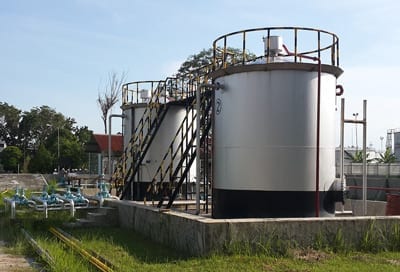
Float balls are used for much more than the plastic float balls found in toilets. Float balls are ideal for boiler systems, oil fields, water management and refrigeration. Nearly every industry that requires liquid level controls, measurements, and control switches has a need for float balls, and having the correct float balls can mean the difference between success and dangerous equipment failure.
Float balls are typically made of either metal or plastic and each have their own benefits. Though there are times when either plastic or metal float balls can be used, most scenarios call for either one or the other. Read on to learn more about the differences between stainless steel vs plastic floats!
Plastic Float Uses
Plastic float balls are typically designed for light use consumer based products. Plastic float balls are often found in basic plumbing applications such as a toilet overflow valves and check valves in sump pumps and pool pumps. Because plastic is inexpensive it helps reduce manufacturing costs. However, most higher-quality consumer product will contain a stainless steel float because they are built to last longer and endure heavier use.
Plastic Float Benefits:
- Low manufacturing costs
Stainless Steel Float Uses

Steel float balls are corrosion resistant and very durable, and are also preferred in chemical applications. For example, in chemical separators, a float ball is required to open a release. This allows heavier materials to remain while leaving the lighter materials to drain into a separate storage area. This requires a stainless steel float ball. The chemicals could break down a plastic float ball, causing a premature release and allowing the materials to empty into the incorrect storage areas.
Stainless Steel Float Benefits:
- Durable
- Heat resistant
- Corrosion resistant
- Pressure resistant
If you need a float you can always rely on in any application, Arthur Harris has you covered. With over 130 years of experience, we’ve perfected the process of manufacturing high-quality stainless float balls. Feel free to contact us today with any questions you may have!




